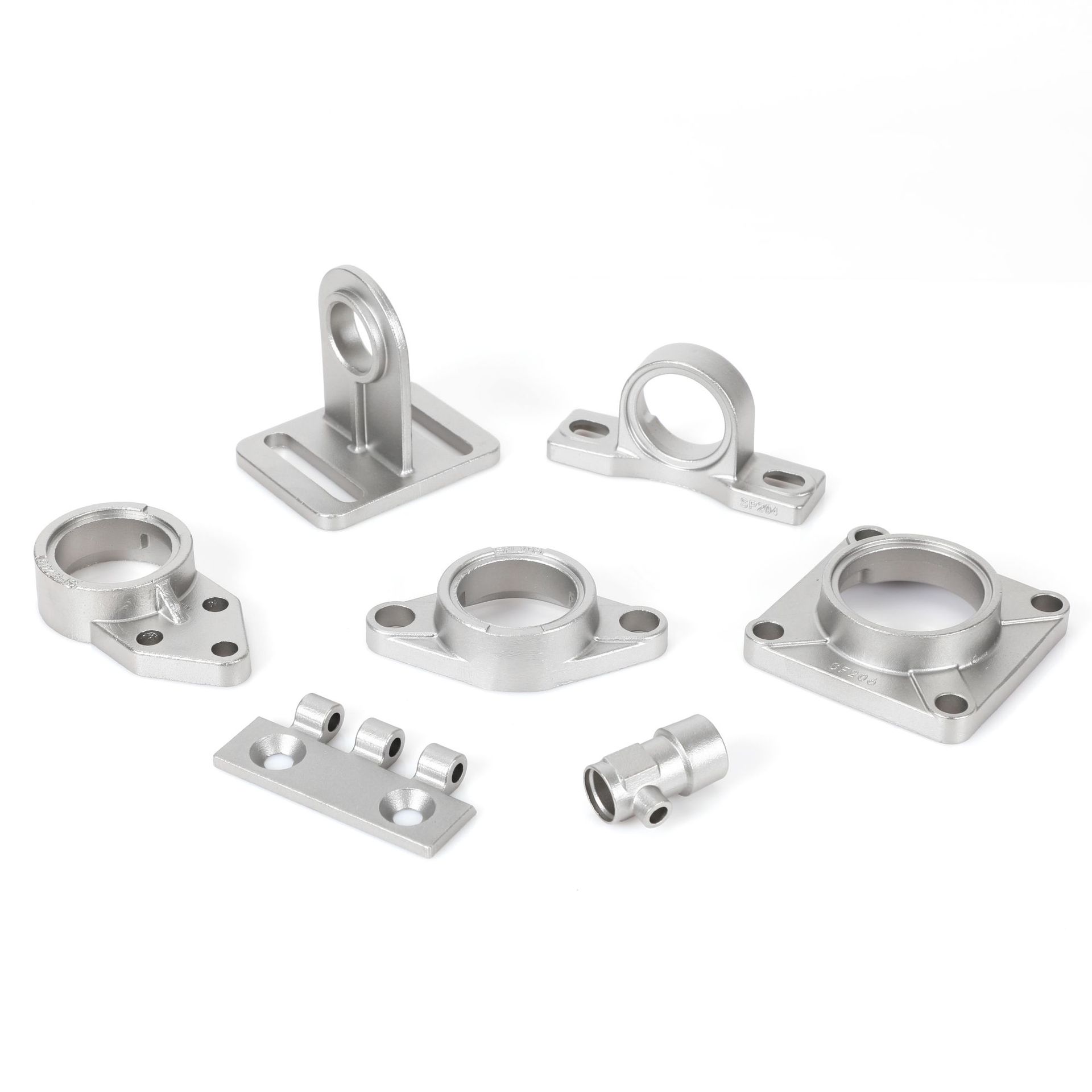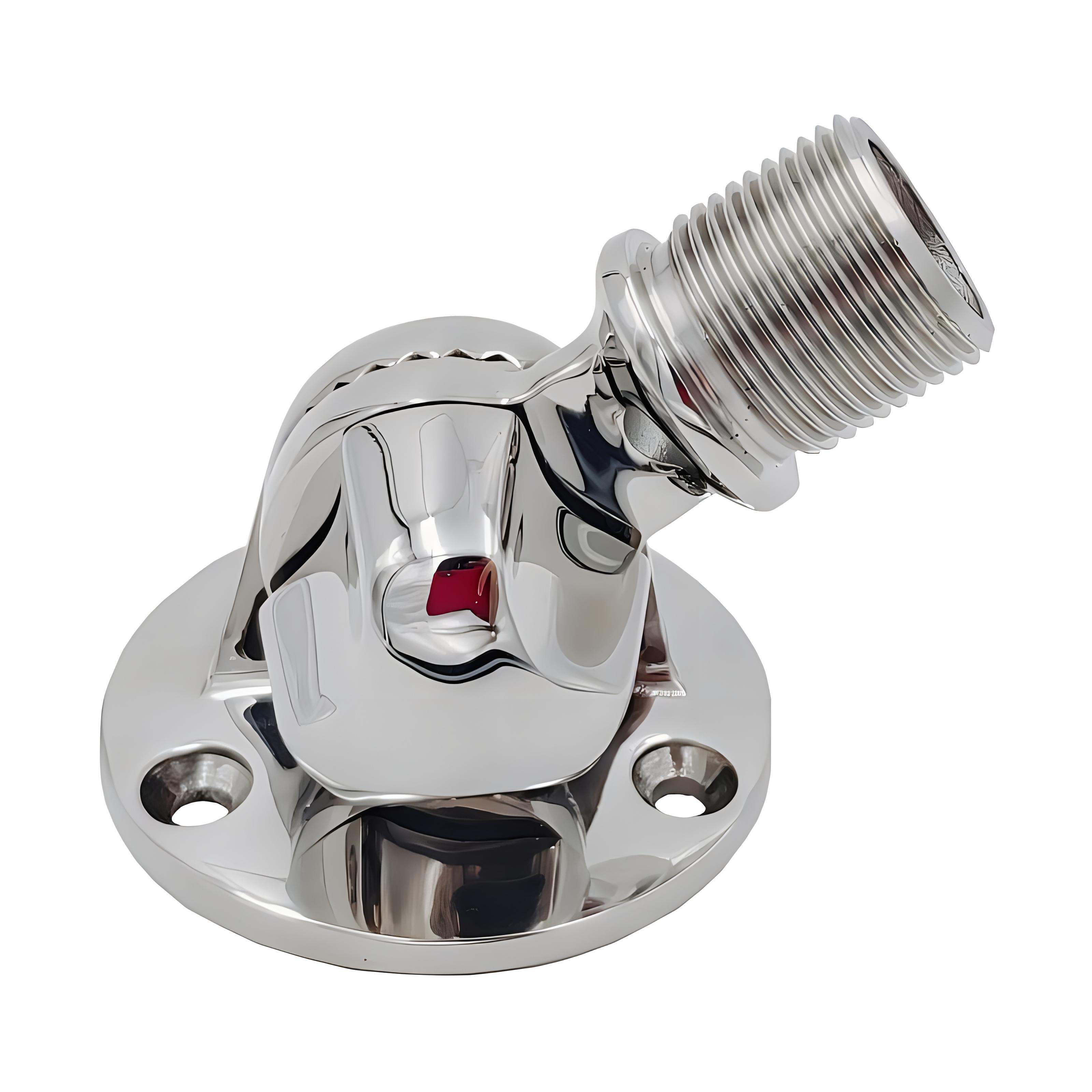
Privacy statement: Your privacy is very important to Us. Our company promises not to disclose your personal information to any external company with out your explicit permission.
Brand:A&M
Min. Order:5 Ton
Transportation:Ocean,Land,Air
Packaging:Export standard packing
Supply Ability:500tons per month
Place of Origin:CHINA
Productivity:500tons per month
A&M have belowed advantages: 1,The ability to casting all grades of steel, and meet GB.ASTM. AISI. DIN. BS. JIS standard and so on. 2,The parts we produced without hole or crack or any other defect. 3,Advanced inspection equipments, e.g....
Brand:A&M
Min. Order:5 Ton
Transportation:Ocean,Land,Air
Packaging:Export standard packing
Supply Ability:500tons per month
Place of Origin:CHINA
Productivity:500tons per month
Product Description Every Batch: material reports and inspection reports will be offered Offered Special requirement: X-Ray; Magnetic Partical Inspection;Ultrasonic Testing;Salt Spray Testing and so on Offered surface treatment: Mirror...
Hardware Castings are crucial components found in a variety of industries, serving essential functions across different applications. These castings encompass a diverse range of products utilised in sectors such as construction, automotive, aerospace, marine, and manufacturing. They contribute to structural integrity, functional operation, and aesthetic appeal in various projects and products.
Components of hardware castings include brackets, hinges, handles, knobs, fasteners, fittings, and decorative elements. These components are typically manufactured from materials such as steel, stainless steel, aluminium, brass, and bronze, each chosen for its specific properties and suitability to the intended application.
Steel, including carbon steel and alloy steel, is commonly used for structural hardware components due to its strength, durability, and cost-effectiveness. Stainless steel, known for its corrosion resistance, is ideal for outdoor, marine, and corrosive environments, making it suitable for architectural and decorative hardware. Aluminium offers lightweight and corrosion-resistant properties, making it ideal for applications where weight reduction and durability are critical, such as automotive and aerospace components. Brass and bronze, valued for their aesthetic appeal, corrosion resistance, and antimicrobial properties, are often used for decorative hardware and architectural fittings.
Hardware castings can be classified into structural castings, functional castings, and decorative castings based on their function and application. Structural castings include brackets, supports, and fittings used for structural support and reinforcement in construction and machinery. Functional castings serve specific purposes in machinery, equipment, furniture, and appliances, while decorative castings enhance the aesthetic appeal of architectural structures and interior fittings.
These castings find applications across industries, including construction, automotive, aerospace, marine, and manufacturing. In construction, they are used for structural components, fasteners, and architectural fittings in buildings and infrastructure projects. Automotive applications include engine mounts, chassis brackets, door handles, and other components requiring strength, durability, and precision.
A & M MANUFACTURING COMPANY LTD
WHAT ARE HARDWARE CASTINGS

Stainless Steel Fittings

Marine Hardware
WHY CHOOSE US
A & M MANUFACTURING COMPANY LTD CAPABILITIES

Privacy statement: Your privacy is very important to Us. Our company promises not to disclose your personal information to any external company with out your explicit permission.

Fill in more information so that we can get in touch with you faster
Privacy statement: Your privacy is very important to Us. Our company promises not to disclose your personal information to any external company with out your explicit permission.